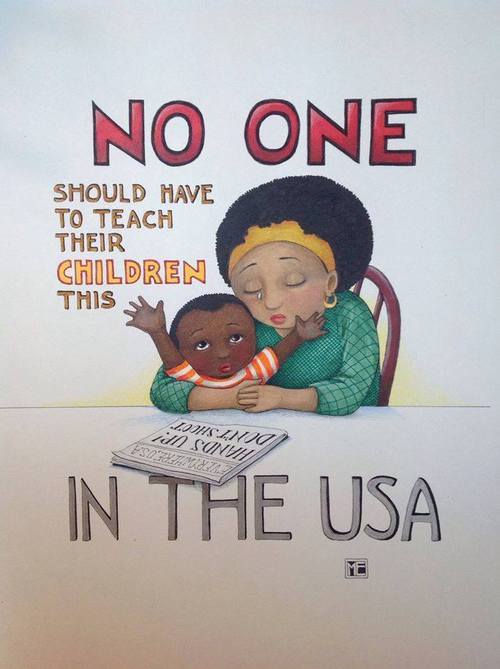Male Feminist Under Deconstruction

This Week in Reproductive Justice is a weekly round-up of what is happening in reproductive rights, reproductive health, and other topics related to reproductive justice. Compiled by Teddy Wilson, a reporter who covers reproductive rights for RH Reality Check. Follow him on Twitter: @txindyjourno
The events that have unfolded in Ferguson, Missouri, in recent weeks have revealed many tragedies, among them the fact that the death of so many youth of color in this country is still debatable in its status as a vaunted “feminist issue.” But it is, and the expansive definition of reproductive justice, which reaches into the universe of conditions necessary to create and sustain life, shows us how.
A recent report by the Girl Scouts Research Institute shows that the Midwest, Northeast, and Mid-Atlantic are the best regions of the United States to raise girls, while the South – specifically Mississippi, Arkansas, and Georgia – is the worst.
The Arkansas gubernatorial race features one firmly anti-choice candidate, and one with a vacillating stance on abortion rights.
Nearly all of the abortion clinics in Ohio are operating with expired licenses because the state health department hasn’t approved or denied their annual applications.
Reproductive rights advocates filed a new federal lawsuit challenging a Louisiana law that requires abortion providers in the state to obtain admitting privileges at a local hospital.
Rogue abortion provider Dr. Steven C. Brigham may permanently lose his ability to legally practice medicine after a New Jersey judge recommended a permanent revocation of his medical privileges.
The Obama administration announced new rules for religiously affiliated nonprofits that object to complying with the birth control benefit under the Affordable Care Act.
Can fracking operations cause health problems or birth defects in babies who are born near wells? Preliminary scientific research says that it might and that more research needs to be done as oil and gas production booms across the country.
Both the California Senate and assembly unanimously passed a bill last week significantly restricting the sterilization of state prison inmates.
The National Institutes of Health awarded an R01 grant totaling $19.3 million to the Department of Obstetrics and Gynecology and the Department of Biostatistics at UAB to conduct a study of chronic hypertension in pregnancy.
Africa’s population will reach four billion by 2100, according to a report released by UNICEF early this week. As the population grows, more investment in maternal health and family planning resources will be needed to ensure women’s reproductive health.
In the Philippines, amid a population explosion and staggering birth rate, caused partly by limited access to contraception or family planning advice, PBS NewsHour follows mothers and newborns from one of the busiest maternity wards in the world to the overcrowded slums where families live.
The new India national health policy being brought out by the government will address the rising incidents of reproductive illnesses in young urban women
The Kenyan Cabinet Secretary for Health James Macharia says the government has identified increased awareness on reproductive health services as a key intervention to reducing maternal deaths by nearly 30 percent.
A recent study has shown that the Zambian health system would save up to $611,046 per year if each woman treated for a complication of unsafe abortion had instead accessed safe termination services.
Photo: Artwork by Mary Engelbreit
mediaconsortium-blog liked this
munkaroo liked this
supessex liked this
pterod-axl reblogged this from beyondxy
cbuchanan07 reblogged this from journolist
journolist reblogged this from beyondxy
journolist liked this
beyondxy posted this